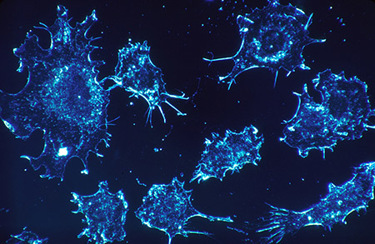Moving Forward With Immunotherapies For Cancer
By Barbara Gilmore, Senior Consultant, Transformational Health, Frost & Sullivan

Frost & Sullivan recently invited academic and industry leaders in immuno-oncology (I-O) to participate in a new and unique thought leadership forum, our Virtual Think Tank series. This forum was initiated to discuss the current state of immunotherapies, implications of research and development occurring today, key challenges, and future approaches to the targeted use of the immune system in cancer treatment.
Immunotherapies for Cancer
Various approaches to leveraging the human body’s own immune system to overcome tumor evasion are revolutionizing how cancer is treated. Immuno-oncology (I-O) treatments have the potential to generate long-term survival as significant response rates and durable remissions are occurring in both monotherapy and combination therapies for several different tumor types.
Despite the successes in clinical trials, there are numerous challenges with the use of I-O therapeutics. Studies are underway to determine what can be done to improve response rates of patients who do have specific biomarkers. Currently, predictive biomarkers are effective in only a small fraction of patients. Side effects are a major problem with the use of immunotherapeutics, particularly cytokine release syndrome (CRS) and neurotoxicity, which occur in many patients and can be fatal.
Commercial hurdles are very high, especially for novel therapeutic interventions such as autologous cell therapies. Collaboration between stakeholders in different segments of I-O research is key to accelerating the development of the next generation of successful treatments.
Regardless of the I-O approach taken — be it a checkpoint inhibitor, adoptive T-cell therapy, cancer vaccine, oncolytic virus therapy, or nonspecific immunotherapy — the immune system still has the ability to mask the existence of tumors. With each new I-O approval, disease management requires oncology clinicians to refocus the way they treat their cancer patients, across numerous tumor types. Cancer care is transforming as new discoveries move from clinical trials to marketed therapeutics.
Continue reading to hear their thoughts on immunotherapies and the critical role for the immune system to play, especially in the advanced stages of cancer, since traditional standard-of-care therapies do often work fairly well.
Get unlimited access to:
Enter your credentials below to log in. Not yet a member of Drug Discovery Online? Subscribe today.
